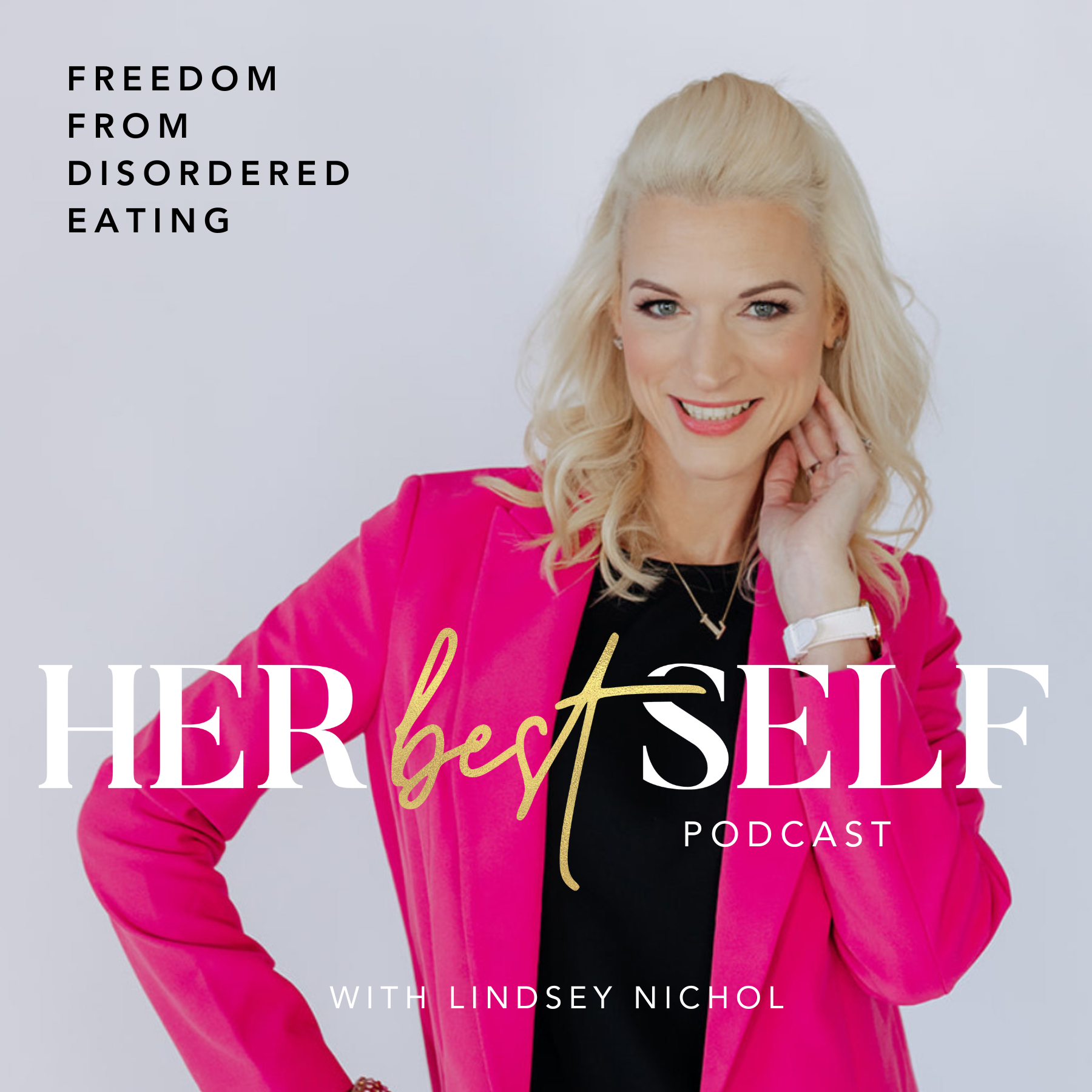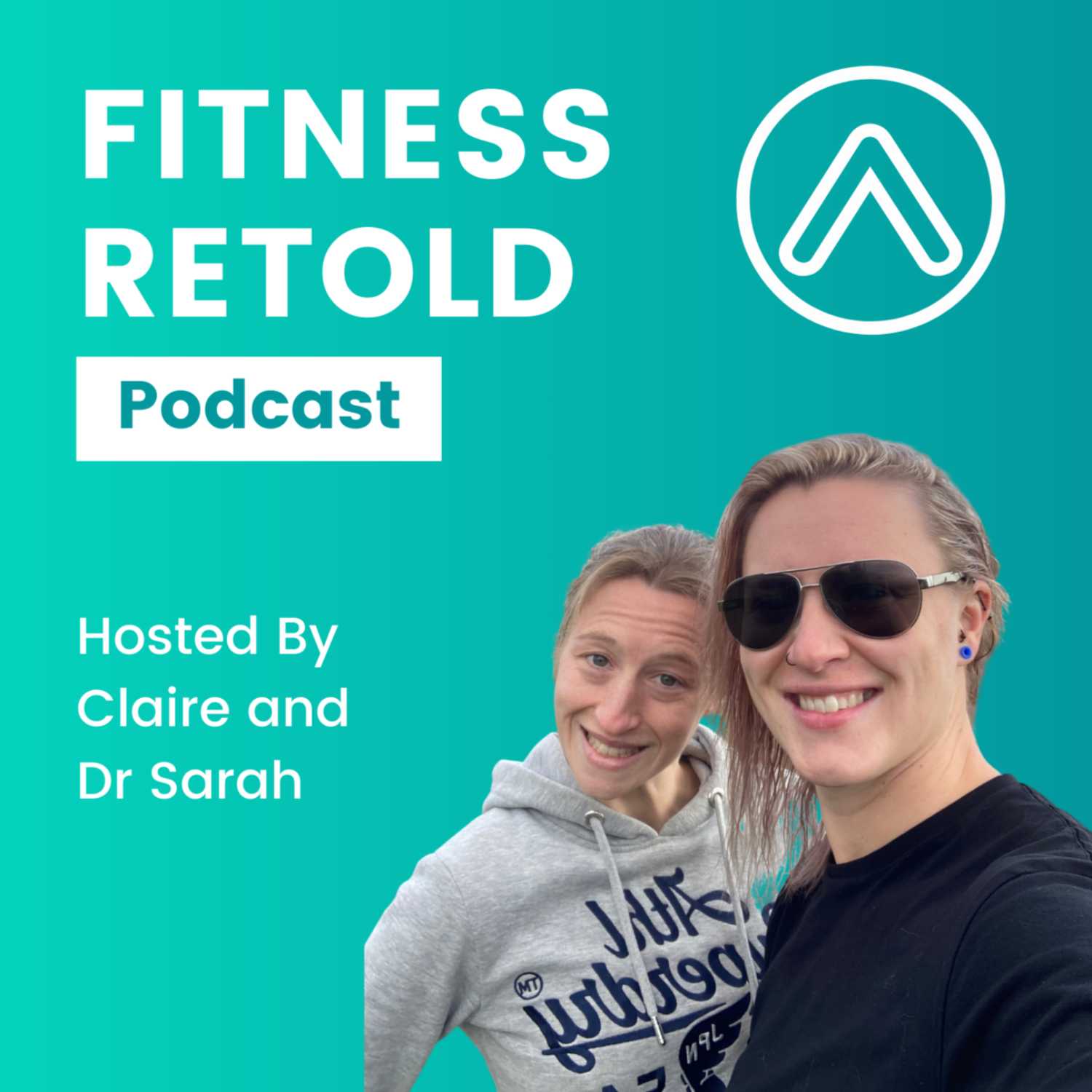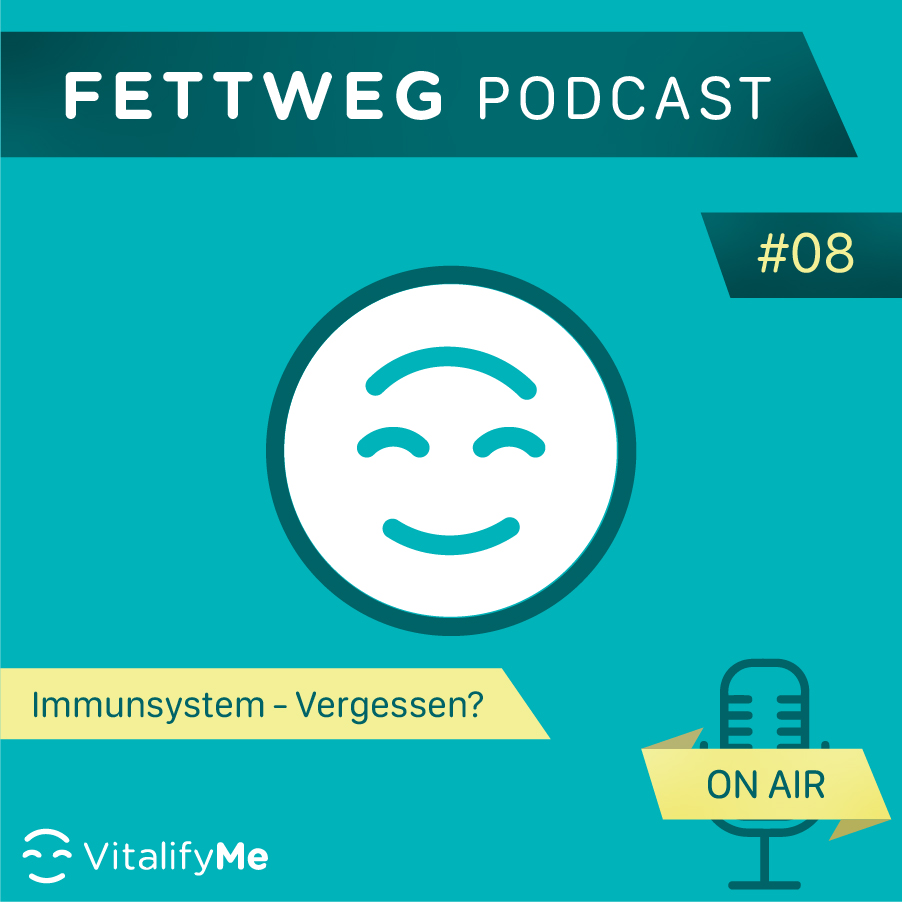 |
Her Best Self: Freedom from Disordered Eating, Body Obsession & PerfectionismAuthor: Lindsey Nichol - Certified Health Coach, Eating Disorder Recovery Coach, Food Freedom Coach, Eating Disorder Intuitive Therapy Certified Language: en Genres: Health & Fitness, Mental Health, Nutrition Contact email: Get it Feed URL: Get it iTunes ID: Get it Trailer: |
Listen Now...
EP 267.5: The Cost of Perfection ~ “Be Thin but Not Too Thin” (& Other Impossible Standards Destroying Your Mental Health)
Monday, 2 February, 2026
The cost of perfection left me perfectly exhausted. Be thin, but not too thin. Be confident but not overly confident. Be successful, but not too successful. If you're with me and you experience the pressure to be perfect, this is a perfect paradox—and it is time to dump the impossible standards that are destroying your mental health and that are so tied to eating disorders. In this episode, I'm diving into the relentless pressure to be perfect and how it's literally rewiring your brain to keep you stuck. Whether you're just starting your recovery journey or you've been on this path for years, perfectionism might feel like both an old friend and your biggest obstacle. And when you couple perfectionism with the pressure from culture and society to be Instagram-ready? The output you receive is simply exhaustion. You're exhausted, sis. And trying to live up to these impossible standards. But today, we're going to dissect this. We're going to look at what science says about breaking free. Because you don't just have to take my word for it—research shows your brain can actually change. In this episode, you'll discover: The impossible standards we're all trying to live up to (and why they're literally impossible) The shocking statistics: 68% of individuals with eating disorders display clinically significant perfectionism Why perfectionism often appears YEARS before any eating disorder behaviors The deep roots of perfectionism: family dynamics, trauma, social media (users who spend 3+ hours/day are 60% more likely to develop body image issues) The neuroscience: How perfectionists have heightened activity in the brain's "error detection center" How altered serotonin and dopamine systems make it harder for perfectionists to feel "good enough" or satisfied The vicious cycle: threat detection → anxiety → perfectionist behaviors → temporary relief → reinforced neural pathways The HOPE: How mindfulness, self-compassion, and exposure to imperfection can actually change your brain Why true recovery happens when you stop trying to do it perfectly and start doing it honestly A powerful devotional insight: "God won't bless who you pretend to be" The truth: Your worth isn't measured by impossible standards—it's measured by your courage to show up If you're tired of being tired, if you're exhausted from trying to be "perfect," if you feel stuck in the perfect paradox—this episode will give you both the science and the hope you need to break free. KEY QUOTES FROM THIS EPISODE 💛 "The cost of perfection left me perfectly exhausted." 💛 "Be thin, but not too thin. Be confident but not overly confident. Be successful, but not too successful. This is a perfect paradox and it is time to dump the impossible standards that are destroying your mental health." 💛 "That perfection you're chasing? It's like trying to catch smoke with your bare hands. Not humanly possible. It's just not possible." 💛 "I remember thinking that if I could just get everything perfect—my meals, my exercise, my body—then finally I'd be enough." 💛 "Research shows that up to 68% of individuals with eating disorders display clinically significant perfectionism. And perfectionism often appears even years before any eating disorder behaviors." 💛 "Perfectionists have heightened activity in the brain's error detection center. It acts like this oversensitive alarm system that's constantly scanning for things you're doing wrong or for mistakes." 💛 "The 'feel good' chemical—serotonin—is altered if you're a perfectionist, meaning the chemical that affects your mood regulation, your satisfaction, and the ability to feel good enough is altered." 💛 "Altered dopamine reward circuits make it harder to feel satisfied. It makes it harder for you to feel good enough. This creates that constant drive, that constant need to do better, to achieve more, to be smaller." 💛 "This cycle is created: Your threat detection system becomes hyperactive. This leads to increased anxiety. Anxiety triggers perfectionist behaviors. This gives you temporary relief. But it simply reinforces the cycle." 💛 "There is hope. With mindfulness practices, with self-compassion, with the opposite of perfection—being exposed to situations where you're almost forced to be imperfect—research shows you can actually change that hyperactivity in the brain." 💛 "Even if you feel like recovery is impossible, even if you feel like you've been doing this forever, I want you to understand that there is a neurobiological connection and research shows you can change. Your brain can change." 💛 "True recovery happens when you stop trying to do it perfectly and you start doing it honestly." 💛 "In a world filled with protocol, a never-ending list of do's and don'ts, and the pressure to be perfect, it can seem impossible to discover who you really are. But God uniquely made you. Nothing about you is a mistake, and He won't bless who you pretend to be." 💛 "Stop conforming, stop shrinking, stop dimming your light, and stop running from who and what you were always made to be." 💛 "Recovery is not about being perfect. It's about being present. It's about being real. It's about being gentle with you." 💛 "Your worth isn't measured by the ability to meet impossible standards, but it is measured by your courage to show up." THE IMPOSSIBLE STANDARDS (THE PERFECT PARADOX) You're trying to live up to contradictions that are literally impossible: ❌ Be thin, but not too thin ❌ Be confident, but not overly confident ❌ Be successful, but not too successful ❌ Be perfect with your meals, exercise, and body—then maybe you'll be enough The reality? These standards are like trying to catch smoke with your bare hands. They're not humanly possible. And when you couple perfectionism with the pressure from culture and society to be Instagram-ready, the output is exhaustion. Of course you're tired. Of course you're tired of being tired. It is impossible living up to these standards. THE STATISTICS: PERFECTIONISM & EATING DISORDERS 68% of individuals with eating disorders display clinically significant perfectionism Perfectionism often appears YEARS before any eating disorder behaviors - making it a crucial early warning sign Perfectionism remains elevated even AFTER recovery - making it a crucial focus in treatment and why so many people find themselves stuck in the "messy middle" of recovery Social media impact: Users who spend 3+ hours a day on social media are 60% more likely to develop body image issues THE DEEP ROOTS: WHERE PERFECTIONISM COMES FROM Your perfectionism didn't just appear out of nowhere. It has roots: 🌱 Early environmental factors: Family dynamics Parental expectations Academic and achievement pressure 🌱 Early exposure to: Diet culture Specific body ideals Trauma and childhood experiences 🌱 Social media's impact: Constant comparison Curated perfection Impossible standards reinforced daily THE NEUROSCIENCE: WHAT'S HAPPENING IN YOUR BRAIN 1. HEIGHTENED ERROR DETECTION CENTER Perfectionists have heightened activity in the brain's error detection center. It acts like an oversensitive alarm system constantly scanning for things you're doing wrong or mistakes. This hyperactivity creates a feedback loop of anxiety and self-criticism. This is how your brain keeps you "safe"—but it's also what keeps you stuck. 2. ALTERED SEROTONIN (THE "FEEL GOOD" CHEMICAL) Perfectionists often show altered functioning in serotonin—the chemical that affects: Mood regulation Satisfaction The ability to feel "good enough" Translation: It's harder for you to feel satisfied or content. This explains why perfectionism often co-occurs with anxiety, depression, and eating disorders. 3. ALTERED DOPAMINE (THE "REWARD" CHEMICAL) Perfectionists also show altered dopamine reward circuits, which means: It's harder to feel satisfied It's harder to feel "good enough" You have a constant drive to do better, achieve more, be smaller 4. ELEVATED CORTISOL (THE "STRESS" HORMONE) Constant stress and elevated cortisol levels: Make relaxation and self-acceptance SO much more challenging Impact immune function and physical health Worsen eating disorder symptoms (because you're stressed, tired, not eating enough to nourish your body) 5. REDUCED COGNITIVE FLEXIBILITY All of this makes it harder for you to: Be flexible in your thinking Accept the concept of not being perfect Navigate uncertainty THE VICIOUS CYCLE: HOW PERFECTIONISM KEEPS YOU STUCK Here's how the cycle works: 1. Threat Detection System on Overdrive Your brain's alarm system becomes hyperactive ↓ 2. Increased Anxiety Anxiety about failure, not being good enough, rejection, not being worthy ↓ 3. Perfectionist Behaviors Triggered Insert unhealthy eating disorder coping mechanisms ↓ 4. Temporary Relief You get a hit of that "feel superior" chemical because you feel in control ↓ 5. Cycle Reinforced This strengthens the neural pathway over time—like digging a ditch deeper and deeper in your mind ↓ REPEAT This is why it feels like you're literally crawling out of your skin. You want to do something differently, but you're not. The action is hard. If you're there, I see you. I get it. THE HOPE: YOUR BRAIN CAN CHANGE Here's the beautiful truth: Your brain can actually change. With: ✅ Mindfulness practices ✅ Self-compassion ✅ Exposure to imperfection (being in situations where you're forced to be imperfect and there's nothing you can do about it) ✅ New learning experiences (exposures) Research shows you can: Change that hyperactivity in the brain Improve serotonin function Create newer and healthier neural pathways That ditch can stop digging in one place and move to a different place in your brain that's gonna create healthier results for you. THE TRUTH: EVEN IF YOU FEEL STUCK, CHANGE IS POSSIBLE Even if: You feel like recovery is impossible You feel like you've been doing this forever You identify with being a perfectionist with structure and rigid routines You feel like maybe it's possible for HER to recover, but not for YOU I want you to understand: There is a neurobiological connection. Research shows you can change. Your brain can change. You can create absolutely new and healthier pathways. WHAT THIS MEANS FOR YOU You don't have to: ❌ Be thin, but not too thin ❌ Be confident, but not overly confident ❌ Be the most successful to be enough True recovery happens when you stop trying to do it perfectly and you start doing it honestly. Just getting honest with yourself. Looking at the research. Pointing to the facts. Science shows: Changes in your brain are possible. It's the exposure to being imperfect. It's creating self-compassion within you. It's putting yourself in new experiences. This is just collecting data. We're just trying to put ourselves in this experiment. What does that teach us? THE HARD TRUTH As we go into a new month, ask yourself: Are you showing up day after day exactly as you are? Or are you playing a role of who it is that you desire to be—yet you're not even happy in that version? Recovery is measured by your courage to show up exactly as you are. Authentically. YOUR REFLECTION QUESTION What is one area where perfectionism really shows up for you right now? Come share with us: 💛 Private Facebook Community: Her Best Self Society www.herbestselfsociety.com 💛 Instagram DM: @thelindseynichol I want to bring awareness about perfection. Because we hear "life isn't about being perfect"—but we don't actually LIVE that, sis. THE CLOSING TRUTH Recovery is not about being perfect. Life is not about being perfect. It's about: ✨ Being present ✨ Being real with the real people you have here now ✨ Being gentle with you Your worth isn't measured by the ability to meet impossible standards. It's measured by your courage to show up. NEED SUPPORT TO BREAK FREE FROM PERFECTIONISM? WORK WITH LINDSEY 💛 THE RECOVERY COLLECTIVE My group coaching community where women come together to heal, let go of perfectionism, and do the deep work of recovery. You'll have access to me, monthly coaching calls, and a sisterhood that gets you. www.herbestself.co/recoverycollective 💛 1:1 PERSONALIZED COACHING If you're ready for deep, transformational work to rewire your perfectionist brain and finally find freedom—let's work together. 👉 Head to www.herbestself.co and fill out a client application. 🌟 Website: www.herbestself.co 🌟 Instagram: @thelindseynichol 🌟 Free FB Community: www.herbestselfsociety.com 🌟Client Application: HBS Co. Recovery Coaching - Client Application - Google Forms Love this episode? Here's how you can support the show: 💕 Share it with a woman who might need to hear this message 💕 Leave a review on Apple Podcasts - it helps other women find the show 💕 Screenshot and tag @thelindseynichol if any of these steps help you this week! Remember, beautiful: Your worth is not measured by how perfectly you do recovery. Healing isn't linear, progress over perfection always, and you are exactly where you need to be right now. Her Best Self with Lindsey Nichol is a podcast for women in eating disorder recovery who are ready to break free from perfectionism, people-pleasing, and diet culture to live authentically and wholeheartedly. *While I am a certified health coach, anorexia survivor & eating disorder recovery coach, I do not intend the use of this message to serve as medical advice. Please refer to the disclaimer here in the show & be sure to contact a licensed clinical provider if you are struggling with an eating disorder.












